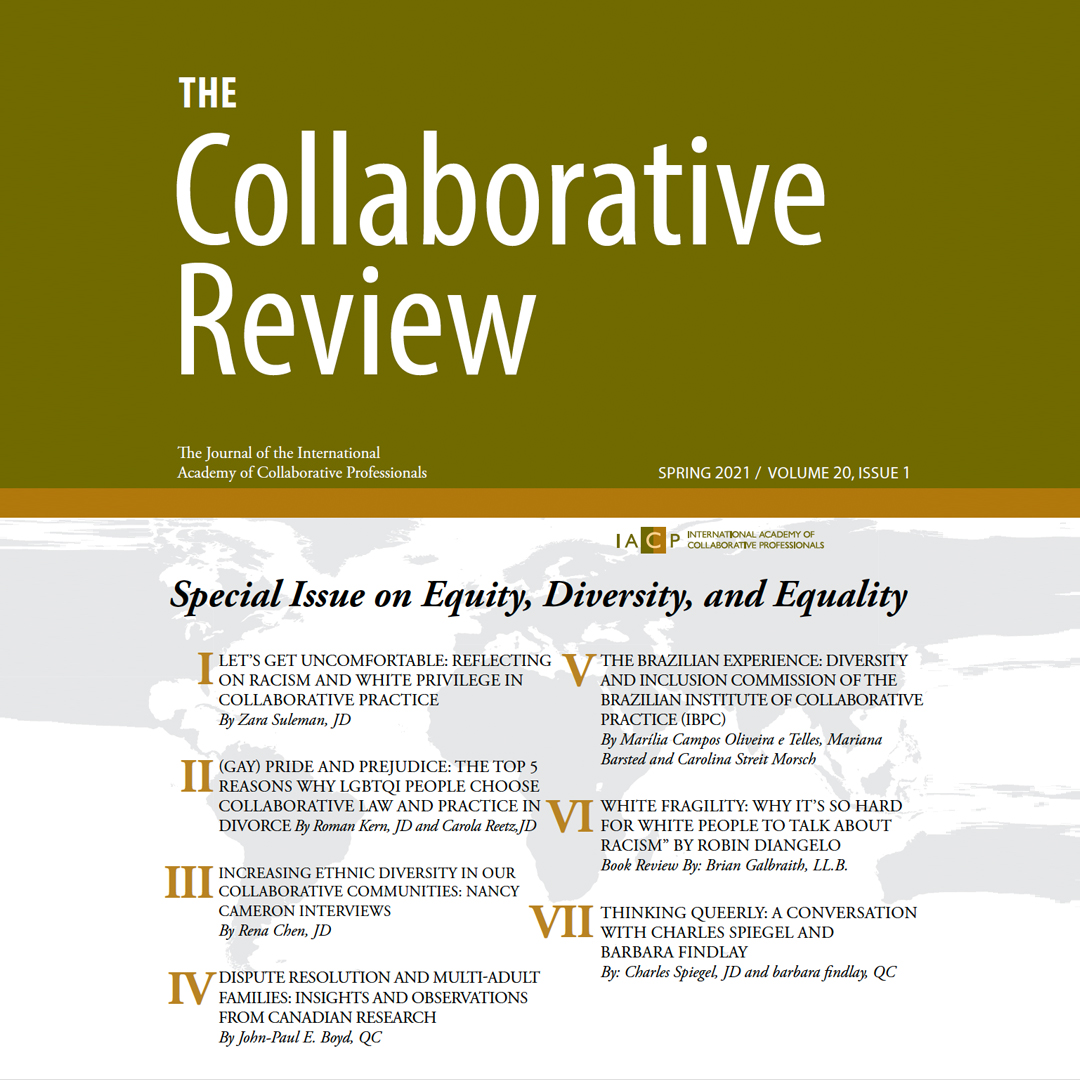
I had the privilege of recently being asked to write an article for The Collaborative Review – The Journal of the International Academy of Collaborative Professionals (IACP). A Special Issue focused on Equity, Diversity and Equality.
The issue had many great articles, including several from my respected family law colleagues in Canada – definitely worth a read!
Below is an excerpt from my article. The article itself can be found here at the Collaborative Practice website.
Regardless of our areas of practice there is a call out for each of us individually, professionally, personally, organizationally, institutionally and systemically to address the impact and ongoing dynamic of systemic racism and white privilege that pervades our lives and the lives of people we work with.
Collaborative Practice, mediation and other alternative dispute mechanisms are no different.
When I started doing Collaborative Law and also became a certified family law mediator, I would regularly get inquiries from racialized people seeking services specifically from racialized practitioners. The desire often conveyed was to have a practitioner that may understand, in part, their experience of oppression, inequity and power relations with dominant systems.
Some had tried Collaborative Law and other dispute resolution processes and did not find these spaces alert, aware or responsive to their needs and experiences.
While Collaborative Practice has the capacity to address such nuances, complexities, issues of imbalance and deeper conversations, in reality this may not be occurring.
When racialized clients would seek out my services, I understood the importance of this and the necessity of the space I took in this practice area.
For the majority of my Collaborative and mediation training, as well as professional development, there have been few or no Indigenous, Black or racialized trainers or leaders in the development of such curriculum or training.
There are also few BIPOC practitioners in the leadership of such associations and professional organizations and professional development direction.
When we do not see ourselves – with our lived experiences of oppression and racism, colonization and white supremacy, and experiences of daily, historical and generational trauma of living in racialized bodies – we cannot help but wonder if we have truly been seen or considered in processes that are developed for all people.
When our experiences are not in the room, how can we shape or transform Collaborative Practice? How can we grow and evolve Collaborative Practice to be more engaged and critical? How can we ensure that we make visible our own practice gaps and weaknesses? How can we make space for our own self-critique and the critique of our colleagues, practices, training and associations?
We need to look at our well-held foundational notions of care, sharing information and creating safe spaces to engage open communication through the critical and intersecting prism of anti-racist and anti-colonial practices.
We will likely need to shift, adapt, revise and ultimately be willing to dismantle and re-imagine new ways of training and practice.
We have the ability to imagine and create spaces for our clients to do the hard work of resolving conflict that may seem insurmountable. We can be the centering forces to help our clients see peace where peace is often hard to find.
We sit in the uncomfortable each day – it is the work that each of us have committed to do in our practice and our profession – so let’s get comfortable with being uncomfortable.

